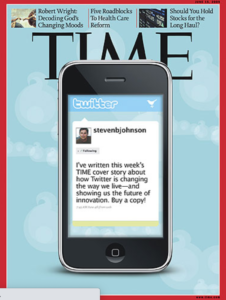
A new market force has been accelerating that may eventually impact most businesses … and probably in a very dramatic way. Let’s look at the dynamics of cancel culture, citizen activism, purpose-driven marketing, and you.
“Cancel culture” is not new, and it’s not “owned” by any single political party. Punishing people when they do something legitimately bad has always existed in some form. In the earliest days of Hollywood, a celebrity would be “blackballed” for going against societal or industry norms. Not only was the person excluded from work, but they would also be ostracized from their social and professional circles.
The origin of the word “blackball” goes back to the 1700s, when private club members cast secret votes on membership using white and black wooden balls. The black balls represented “no” votes. So this idea has been around a long time!
What’s happening today is more subtle … and dangerous. Blackballing isn’t limited to people who have obviously committed crimes or crossed ethical boundaries. It can occur based on a subjective judgment of what is right or wrong, an ethical or legal issue that happened long ago, or even fake news that spins out of control.
And it’s not just a threat to individuals. Companies and organizations of every type are being called out for what might be seen by some as unpopular views and policies. And a view that’s popular with half the world may be unpopular with the other half. It’s hard to win in that environment. But that’s where we need to operate today.
Changing dynamics of purpose-driven marketing
Let’s look at some of the forces at work and how they could impact your company. Why has cancel culture earned so much attention at this point in history?
First, of course, is the increased polarization of our society (speaking as an American here, but it applies elsewhere). There isn’t as much room for friendly debate any more. The lines are drawn into distinct camps on almost every social issue. The reasons behind this are complex — and a topic for another day — but it’s going to get worse, not better, in my view.
 Second, the web enables an ability for people to quickly assemble around a cause and activate through social media. On June 15, 2009, Twitter was featured on the cover of TIME magazine as it changed the course of history during the “Arab Spring.” The ability to coordinate protests online was literally revolutionary.
Second, the web enables an ability for people to quickly assemble around a cause and activate through social media. On June 15, 2009, Twitter was featured on the cover of TIME magazine as it changed the course of history during the “Arab Spring.” The ability to coordinate protests online was literally revolutionary.
In the last few years, citizens have increasingly used this power to turn their attention toward social justice, the environment, and corporate responsibility.
A new generation is discovering that they don’t have to simply “hope” for change. They know they can coalesce on social media and create a formidable megaphone that demands attention. Even a small, passionate group can have an outsized voice and disproportionate power.
Your call for action
Finally, this new level of citizen activism isn’t just calling attention to issues. It’s holding companies accountable for change. In my view, this is the seismic shift in purpose-driven marketing.
Even two years ago, a company could broadcast a statement in response to a controversy and the issue would more or less be over. But today, citizens want to know what is actually happening. “What are you doing about this issue? We need to see it!”
A visible example of this is the voting rights issue in the American state of Georgia. Coca-Cola, a company based in Georgia, worked behind the scenes to remove some of the most restrictive parts of the law as it was being drafted. But when the law was passed, many viewed this as a blatant attempt by Republican lawmakers in power to limit the vote for opposing groups and overcome their humiliating losses in the 2020 election.
Although Coca-Cola proactively used its power to try to blunt the sharp edges of the law before it passed, powerful voices representing Coke consumers and its employees used social media to demand more. They wanted action and they wanted Coke to take a stand. And when they did, former Republican President Trump (who reportedly drinks 12 cans of Diet Coke each day) called for a boycott to hurt Coke for not supporting the law.
The fact is, hundreds of companies are caught in this political crossfire. And we’re just seeing the beginning of this trend. Over time, any company, in any place, could have to respond to demands from citizen activists. And a “statement” won’t be enough.
Action steps
There is a classical marketing framework described as the “four Ps” – product, place, price, and promotion. For some companies, there must now be a fifth P – purpose. This is revolutionary because the first four Ps are driven by competitive market demands. Purpose-driven marketing could be driven by a societal demand.
I’m not saying this is ideal. “Purpose” should not necessarily come about because of a social media whim. It should be a well-thought-out, long-term strategy. However, society is changing so fast and the issues can emerge so rapidly, that even a well-prepared company can be suddenly boxed into a corner. I doubt the amount of effort needed to deal with the Georgia voting law was part of the 2021 Coke public affairs budget, for example.
Right now, the largest companies also have the biggest target on their backs (nobody is marching on Dr Pepper just yet). But I think this trend is just beginning and citizen activism will increasingly become common at the regional and local level.
This is a complex problem that demands internal introspection and insight … before any issue might emerge. It also requires that companies tune-in to the voice of customers like never before. The social media voice of the customer is no longer simply a complaint or a praise. It might be a rallying cry of social activism that deserves your attention.
Purpose-driven marketing and what’s next
On the latest episode of The Marketing Companion, Brooke Sellas and I further dissect this topic. Is purpose-driven marketing for everyone? Something new is going on as consumers learn to rapidly convene around social issues and target brands with unpopular policies. Companies like Ben & Jerry’s are getting ahead of the curve with bold messaging. Other companies are being pulled into it.
In this podcast episode, I suggest that these dynamics could change the very heart of marketing. My thinking is evolving on this, but please listen to my commentary and let me know what you think. Could be profound implications for all of us.
In this show, Brooke and I also discuss the massive shift in the digital advertising industry and drama from the emoji world. Find out what’s happening to the popular “laughing crying” emoji! 
And as a bonus, our funny intro from Scott Monty and Tim Washer is a classic. You won’t want to miss it.
It’s so easy to listen to this podcast episode. Truly. Just click here:
Click on this link to listen to Episode 218
Other ways to enjoy our podcast
- Try this! “Alexa, play the latest episode of The Marketing Companion.”
- Click here to download the latest episode or subscribe on iTunes
- Listen to us on iHeart Radio
- Find us on Google Play
- Find the podcast on Stitcher
- Complete Marketing Companion Episode Guide
- The Marketing Companion YouTube channel
Please support our extraordinary sponsors. Our content is free because of their generosity.
Many thanks to our friend Scott Monty for the awesome show intro. Be sure to check out his amazing newsletter Timeless and Timely.
Tim Washer is contributing creative direction to the show and he’s has worked for Conan O’Brien, John Oliver, among others. He helps corporations build more creative cultures.
 B Squared Media is the premier provider of online customer care solutions and done-for-you social media marketing. Think conversation, not campaign with B Squared. Marketing Companion fans can take advantage of a truly extraordinary offer — $10,000 off your customer care contract or $1,000 toward your first online advertising campaign, Click here to learn more about this amazing opportunity!
B Squared Media is the premier provider of online customer care solutions and done-for-you social media marketing. Think conversation, not campaign with B Squared. Marketing Companion fans can take advantage of a truly extraordinary offer — $10,000 off your customer care contract or $1,000 toward your first online advertising campaign, Click here to learn more about this amazing opportunity!
Illustration courtesy Unsplash.com


